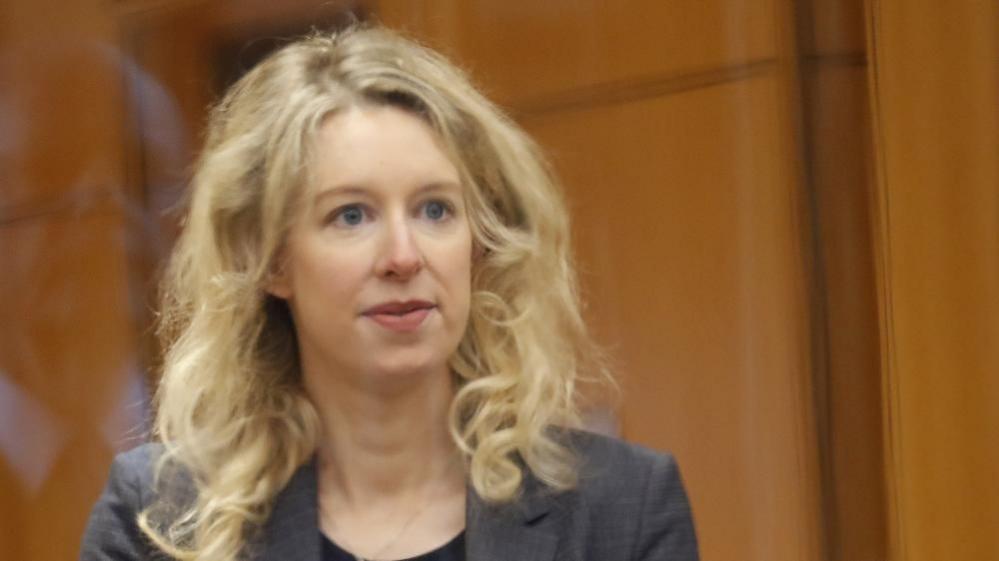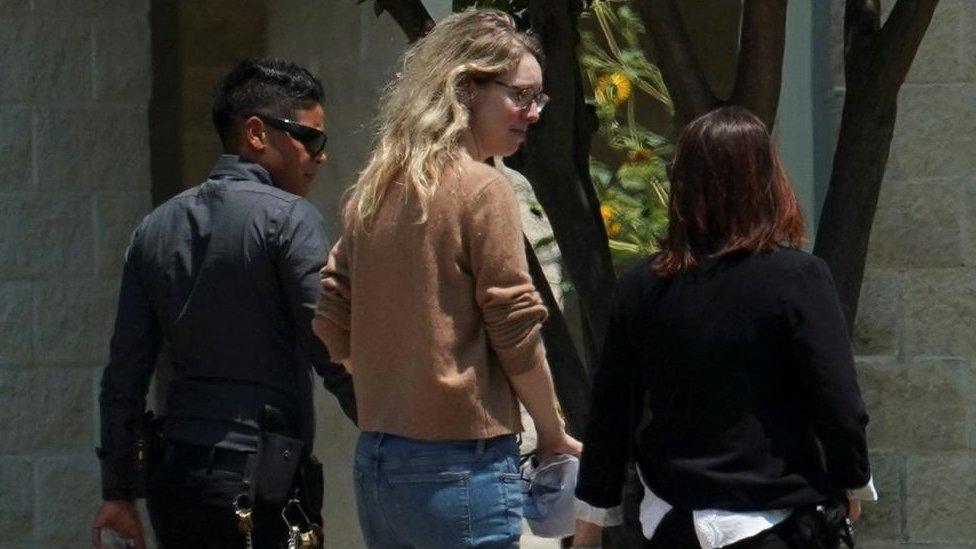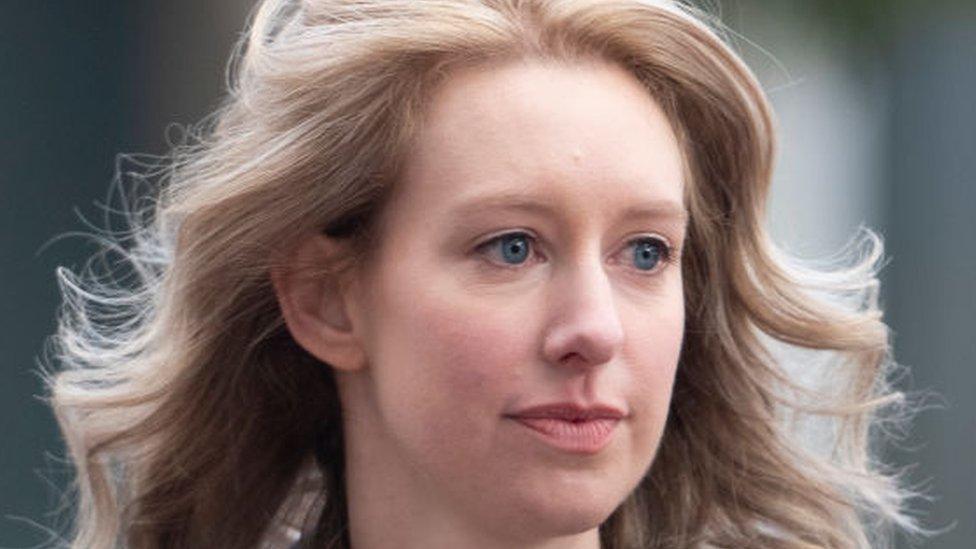Elizabeth Holmes's fraud appeal heard by judges

- Published
Judges have heard an appeal by Theranos founder Elizabeth Holmes against her conviction for defrauding those who invested in her blood-testing company.
An appeal was also entered in the San Francisco federal court on Tuesday for the startup's president, Ramesh "Sunny" Balwani, who is also Holmes's former partner.
The pair were tried separately in 2022, and both received jail terms for their roles in the Silicon Valley scam.
Holmes's lawyer told judges that her client believed she was telling the truth when touting blood-testing devices to receive investment.
Theranos was founded after Holmes dropped out of Stanford University, and went on to be valued at $9bn (£7bn).
The entrepreneur herself was said to be the world's youngest self-made billionaire, who had attracted investment from high-profile figures such as Rupert Murdoch.
Things unravelled in 2018 after investigations revealed the tech did not work. Holmes and Balwani were accused of hiding poor results from Theranos devices - which had been promoted as being able to test for hundreds of diseases from just a few drops of blood.
The company's crash was documented in a TV series, an HBO documentary and a podcast.
Holmes was jailed for more than 11 years over the scandal, and is currently serving time in a Texas prison. Balwani was given a sentence of more than 12 years.
Neither of them attended Tuesday's hearing, during which Holmes's lawyer questioned the testimony of a former Theranos employee and argued that Holmes should have had a greater chance to pick holes in the evidence of another key prosecution witness.
The lawyer portrayed the case, which resulted in a split verdict, as having been close. This was disputed by the prosecution, which has described the evidence against Holmes overwhelming.
Meanwhile, a lawyer for Balwani argued that prosecutors had introduced evidence that overstepped the 2018 indictment against his client.
US media reported that the trio of judges hearing the case gave few signals over when or how they might rule, other than to indicate that the non-contested evidence had been strong.
Related topics
- Published30 May 2023

- Published19 November 2022
